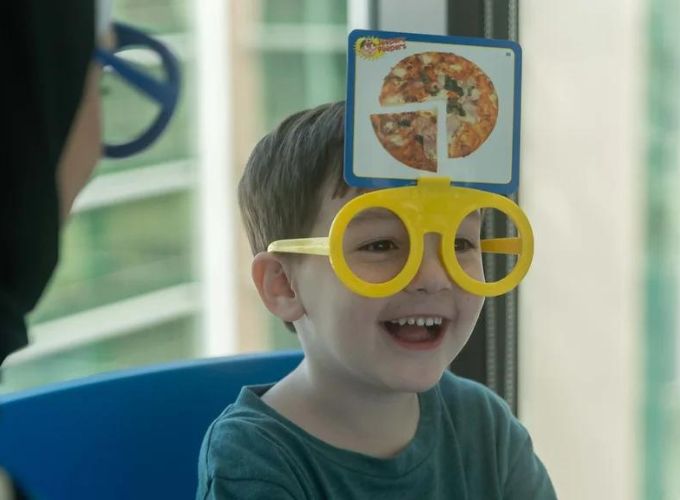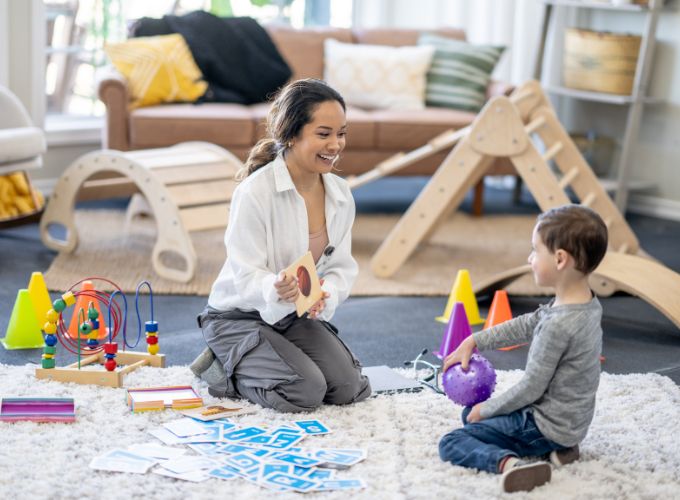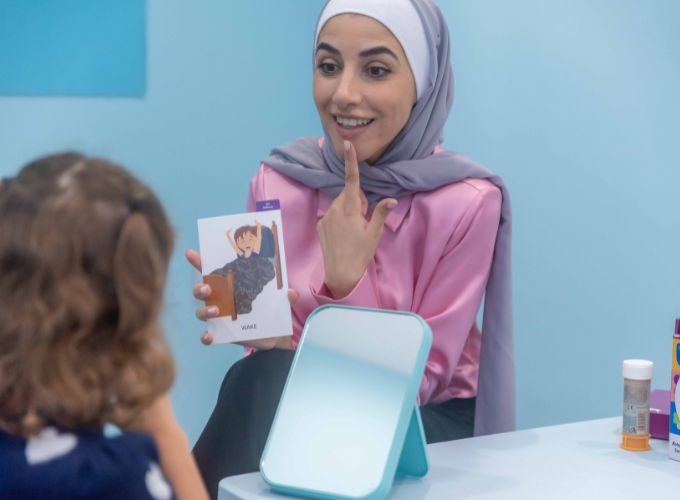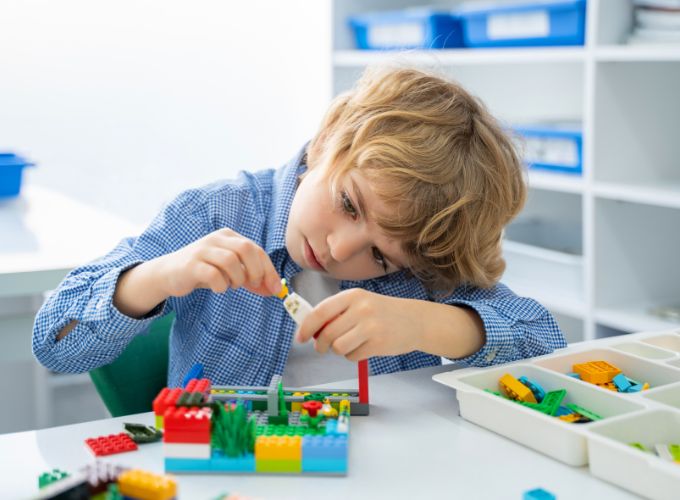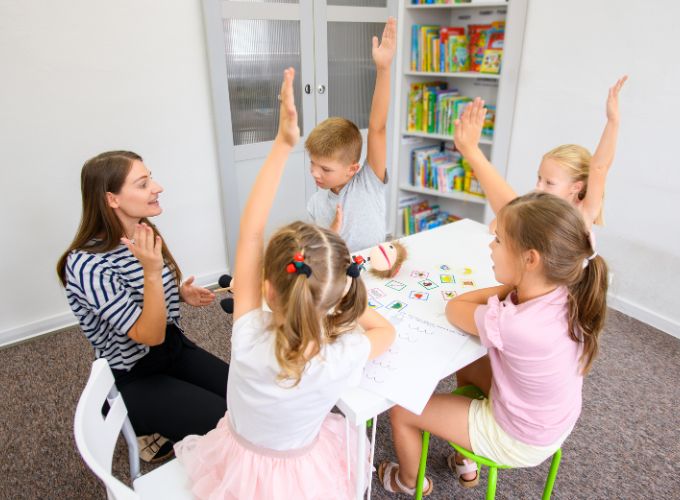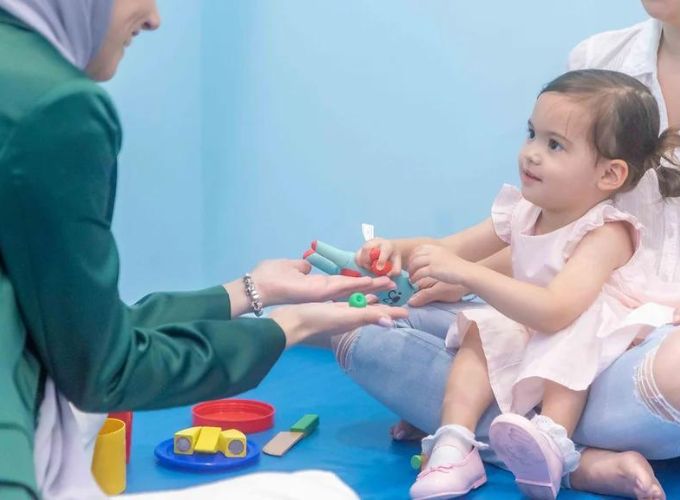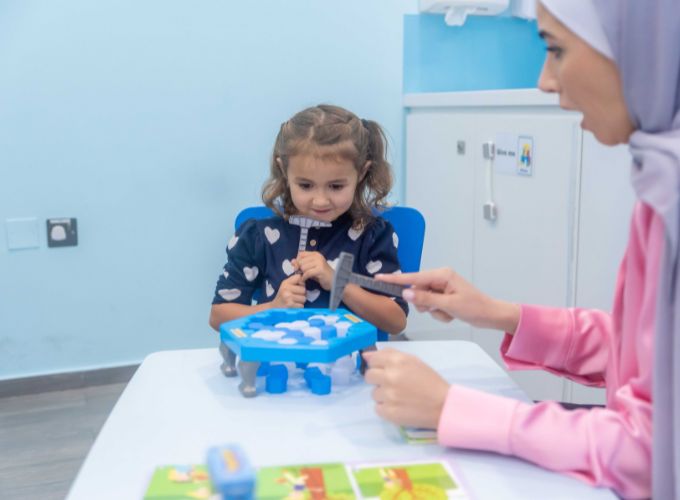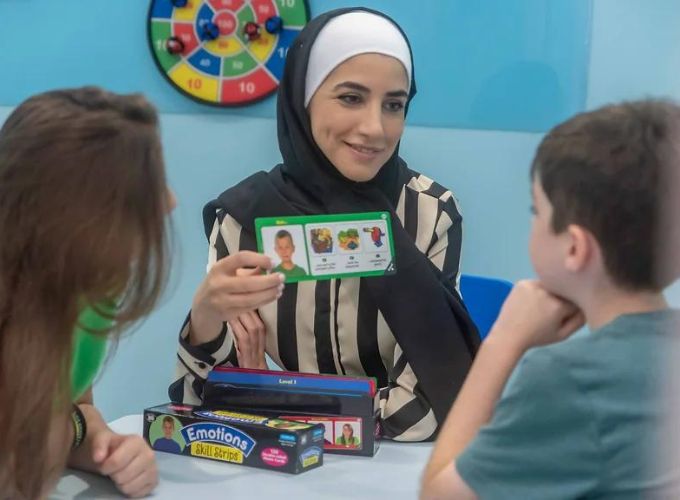Childhood Language Disorders
Children may experience speech or language difficulties before starting school, or these issues might not emerge until they are already in school. Early intervention can help, but challenges may arise later on as well.
If your child struggles to pronounce sounds clearly, this might indicate a speech sound disorder. Language disorders could present as difficulty learning new words, forming sentences, following directions, or understanding questions. Some children may face challenges both in expressing themselves and understanding others.
Bilingualism and Language Development
Many children around the world grow up learning more than one language, and this doesn’t hinder their development. Using multiple languages at home will not confuse or delay your child’s learning. However, speech or language issues may appear across all languages if they exist. Consult an SLT if you have concerns.
Schedule an appointment with one of our Speech Language Therapists today to discover how we can help you.
Signs of Childhood Language Disorders
Children with receptive language issues may struggle with:
- Understanding gestures (e.g. shrugging or nodding)
- Following directions
- Answering questions
- Identifying objects and pictures
- Taking turns in conversation
Children with expressive language difficulties may have trouble:
- Asking questions
- Naming objects
- Using gestures
- Forming sentences
- Learning songs or rhymes
- Using correct pronouns (e.g. “he” or “they”)
Children might also experience difficulties with reading and writing, such as:
- Holding books correctly
- Recognizing letters and numbers
- Telling stories with a clear beginning, middle, and end
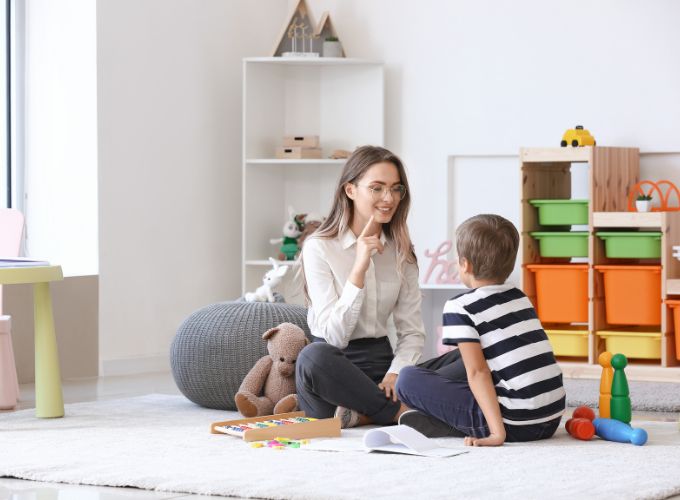
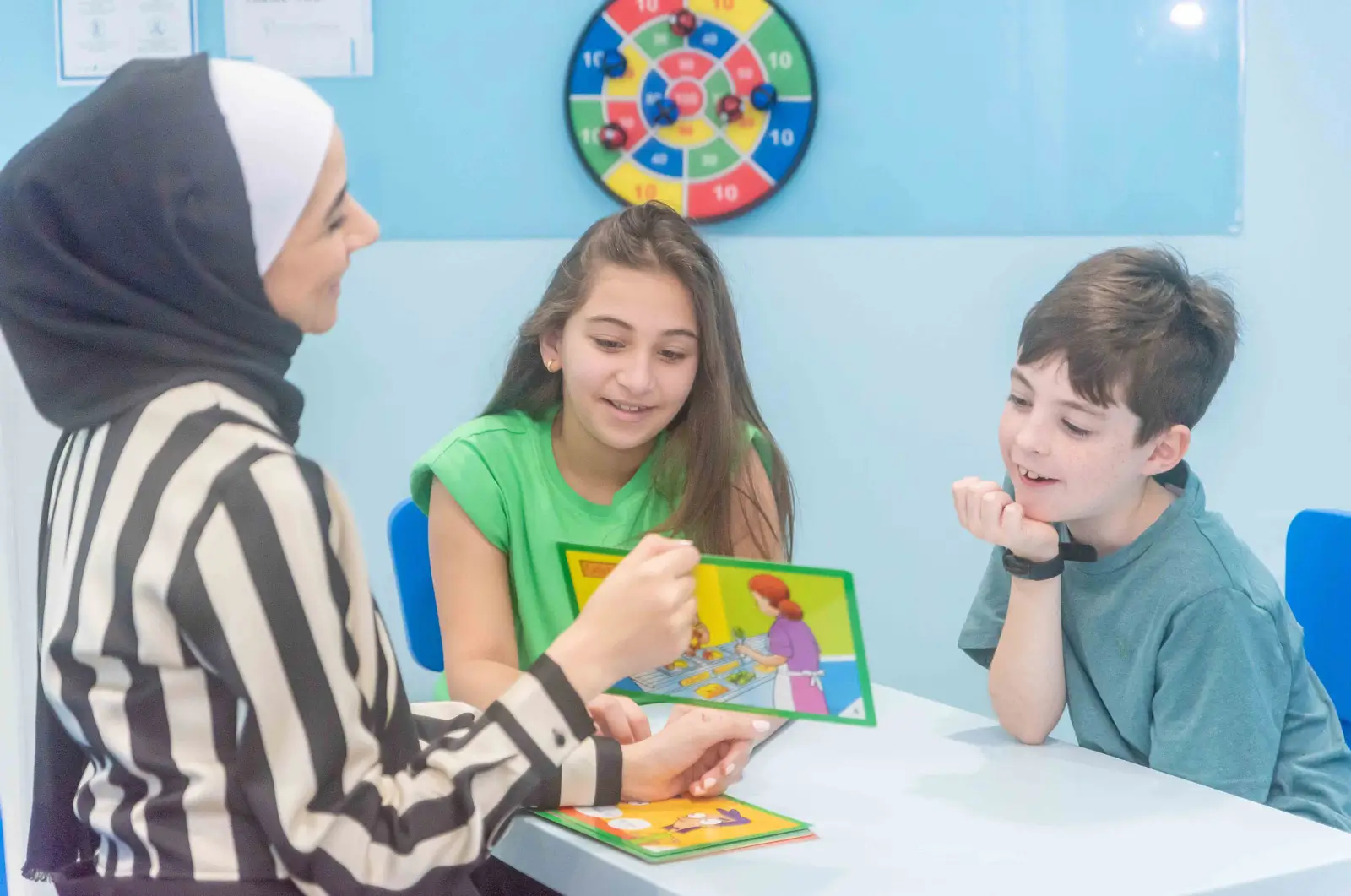
Causes of Childhood Language Disorders
Language disorders may arise for various reasons, including:
- Autism spectrum disorder
- Premature birth
- Brain injury
- Cerebral palsy
- Down syndrome or Fragile X syndrome
- Family history of language difficulties
- Fetal alcohol spectrum disorder
- Hearing loss
- Learning disabilities
- Low birth weight
- Feeding or nutrition issues
- Stroke
In some cases, no specific cause can be identified.
Testing for Language Disorders
An SLT will work with you, your child’s teacher, and other professionals to assess whether your child’s language skills are age-appropriate.
For younger children, the SLT may evaluate:
- Their ability to follow directions
- Knowledge of objects, actions, colors, numbers, and letters
- Participation in routines and interaction with others
- Ability to sing songs or recite rhymes
For early literacy, the SLT may assess:
- How your child interacts with books and pictures
- Recognition of signs, logos, and their own name
- Attempts to write letters and numbers
For older children, language disorders might manifest as:
- Difficulty following directions
- Poor grades
- Trouble reading and spelling
- Limited vocabulary
- Challenges in telling stories or expressing ideas
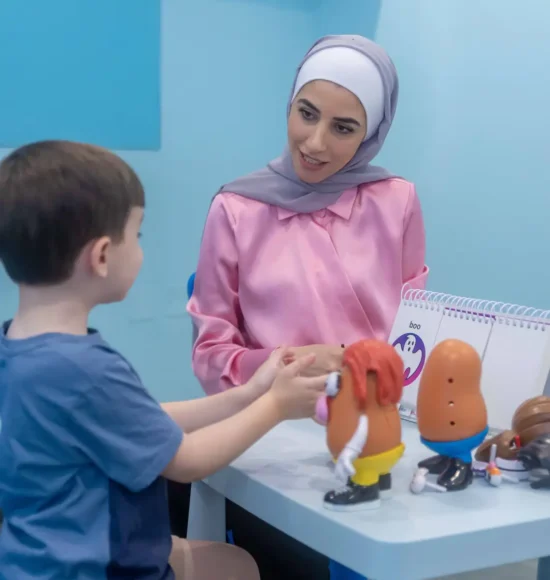
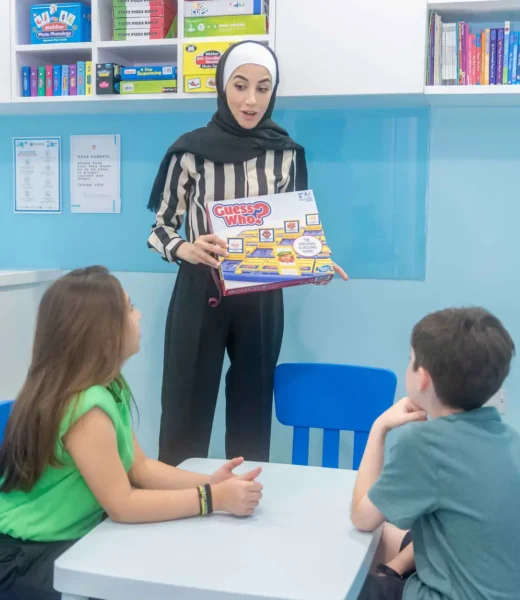
Alternate Terms for Language Disorders
Depending on your child’s specific needs, language disorders may be referred to as:
- Developmental language disorder
- Specific language impairment
Language disorders can also be associated with learning disabilities.
Treatment for Childhood Language Disorders
SLTs work to improve a child’s language comprehension and communication skills, while also preparing them for reading and writing. Therapy goals are developed in collaboration with you and may include:
- Developing early reading and writing skills
- Expanding vocabulary and understanding of complex sentences
- Teaching strategies to help children express their thoughts and feelings
- Supporting you, your family, and teachers in strengthening your child’s language skills
- Introducing alternative communication methods when needed, such as gestures, picture boards, or speech-generating devices (known as augmentative and alternative communication, or AAC)
Your child may work with the SLT individually, in small groups, or within their classroom.
Tips for Supporting Your Child
- Engage in frequent conversations to introduce new words.
- Read to your child daily, pointing out written words.
- Discuss the world around you and comment on your child’s play.
- Identify and read signs together at the store, in school, and outdoors.
- Speak in the language you are most comfortable with.
- Encourage your child to ask questions and give them time to respond.
- Build on what your child says in conversation.
- Limit screen time and use that time for reading and talking together.
Request an appointment to improve speech and communication skills.
Our Speech Therapy center in Abu Dhabi can help enhance language abilities, articulation,
and social communication, empowering you to communicate confidently and effectively!
Schedule a consultation with Perfect Balance Speech & Language Therapy today, and
take the first step on your child’s journey to better communication!
